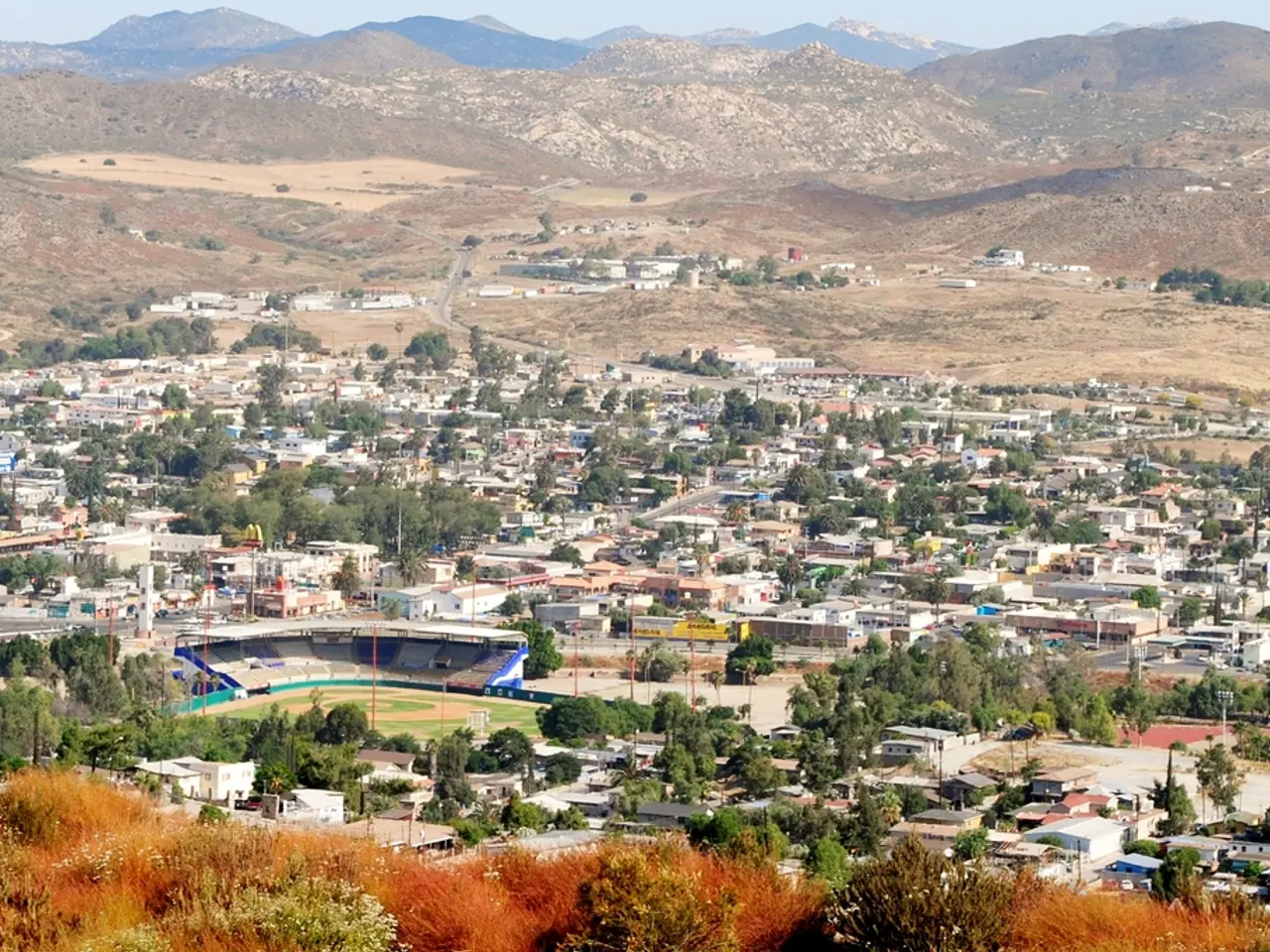UK House Prices Falter During Spring Season Due To High Mortgage Rates in Halifax
The UK property market is showing signs of recovery, with various indicators pointing towards a more positive outlook for the remainder of the year.
According to the latest Halifax House Price Index, house prices have risen by just 0.4% so far this year, a modest increase that suggests a subdued market due to low supply and high mortgage rates. However, the easing of inflationary pressure and the imminent expectation of a bank rate cut have spurred market sentiment, with some analysts predicting a 1.5% growth in property prices.
Zoopla and Knight Frank are among the organisations that have revised their forecasts, with Knight Frank changing its prediction from a decline to average growth of 3%. Estate agent Knight Frank attributes this growth to the reduction in mortgage debt costs and the combination of better interest rate forecasts and a brighter economic outlook.
The general election, which has contributed to lower activity in the property market, is now out of the way, and analysts believe that this could lead to increased activity. Nicky Stevenson, managing director at national estate agent group Fine & Country, suggests that the market will get more busy now that the election is over.
Labour's general election win could provide more certainty to the market, potentially pushing prices back up if demand rises. Labour has promised a Freedom to Buy scheme for new buyers but also plans to reduce the first-time buyer stamp duty threshold from £425,000 to £300,000. Labour has also said it will build 1.5 million homes over the next five years.
Regional variations in property prices are still evident. London continues to have the most expensive property prices in the UK, averaging £536,306. In contrast, Northern Ireland recorded the strongest property price growth of any nation or region in the UK, rising by 4% on an annual basis. The steepest rate of house price inflation is found in the North West, up by 3.8% over the past year.
However, most analysts predict that average house prices will be flat or could fall marginally due to high inflation and reduced purchasing power. The average house price in the UK is currently £288,455, according to the Halifax House Price Index, which is published by the bank Halifax, part of Lloyds Banking Group.
Despite these challenges, there is a more positive outlook for the UK housing market compared to the beginning of the year, with headline inflation reaching its target 2%. As the market continues to adapt to the post-election landscape, it will be interesting to see how these trends develop in the coming months.
Read also:
- The Cost of Speech is Zero, True Strength Lies in Unity
- Beginning a Food Truck Venture: Crucial Stages to Achieve Profitability
- Aiming to simplify the move towards cleaner automobiles, the newly established ministry plans to take direct action with Pannier-Runacher, Létard, and Vautrin at the helm.
- "The imperfect yet essential documentary, "Planet of the Humans," raises challenging and uncomfortable inquiries"




